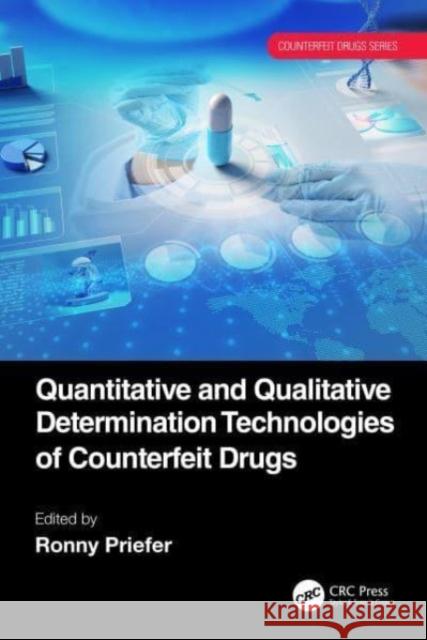Quantitative and Qualitative Determination Technologies of Counterfeit Drugs » książka
Quantitative and Qualitative Determination Technologies of Counterfeit Drugs
ISBN-13: 9781032218922 / Angielski / Twarda / 2023 / 216 str.
Drugs are often counterfeited to reduce manufacture costs, while still marketing it at as an authentic product. Increased incidence of drug counterfeiting is most noticeable in developing countries, which may not have the resources to supply counterfeit detection devices on a large scale. It is important to consider the problems caused and propose options for controlling and reducing the prevalence of counterfeit medications. Different technologies are needed to identify the chemical properties of a questioned drug product, which can then be used to determine its authenticity. This volume focuses on current technological approaches that are able to detect counterfeited pharmaceuticals.FeaturesFocuses on current technological approaches that are able to detect counterfeited pharmaceuticals. Assesses the chemical methods of identifying counterfeits and explains the theoretical underpinnings of the methods. Provides case study type examples of the application for analysis of suspected counterfeit drugs. Discusses the detection and analysis of counterfeit drugs, and appropriate tools for combating this issue. The editor draws on his experience as a respected chemist and prolific author in the field to provide this unique text on drug counterfeiting detection.
Drugs are often counterfeited to reduce manufacture costs, while still marketing it at as an authentic product. Increased incidence of drug counterfeiting is most noticeable in developing countries, which may not have the resources to supply counterfeit detection devices on a large scale. It is important to consider the problems caused and propose options for controlling and reducing the prevalence of counterfeit medications. Different technologies are needed to identify the chemical properties of a questioned drug product, which can then be used to determine its authenticity. This volume focuses on current technological approaches that are able to detect counterfeited pharmaceuticals.
Features
- Focuses on current technological approaches that are able to detect counterfeited pharmaceuticals.
- Assesses the chemical methods of identifying counterfeits and explains the theoretical underpinnings of the methods.
- Provides case study type examples of the application for analysis of suspected counterfeit drugs.
- Discusses the detection and analysis of counterfeit drugs, and appropriate tools for combating this issue.
- The editor draws on his experience as a respected chemist and prolific author in the field to provide this unique text on drug counterfeiting detection.











